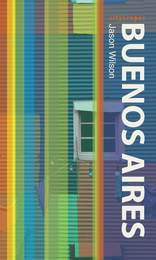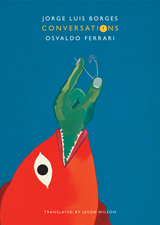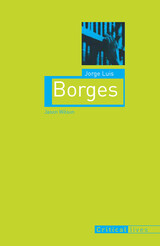
Wilson offers a history of Buenos Aires’s beginnings as a Spanish colony in the sixteenth century, describing how it evolved from a port city for European trade to a booming, multicultural regional capital that became the leading destination for European immigrants. He examines the many swings between authoritarian and democratic governments the city has experienced during its history and sorts out the urban myths from the real story of the monuments, buildings, and people of Buenos Aires. The book also includes essays on present-day Buenos Aires—its parks, cemeteries, museums, and bookshops—to reveal what makes the city tick. Illustrated throughout with contemporary photos and compelling historical images, Buenos Aires provides useful references for travelers looking for restaurant, hotel, and itinerary ideas.
One of the first titles in Reaktion’s new CityScopes series, this social and urban history is an authoritative introduction and intimate guide to this vibrant, alluring city, past and present.

The Argentine short-story writer, essayist, poet and translator, contributed immensely to twentieth-century literature, and more specifically to the genres of magical realism and fantasy. As he progressively lost his sight—he became completely blind by the age of fifty-five—the darkness behind his eyelids held enchanting imagery that translated into rich symbolism in his work. The inner workings of his curious mind are seen vividly in his conversations with Ferrari, and there’s not a subject on which he doesn’t cast surprising new light. As in his tale “The Other,” where two Borgeses meet up on a bench beside the River Charles, this is a dialogue between a young poet and the elder teller of tales where all experience floats in a miracle that defies linear time.

“Through the years, a man peoples a space with images of provinces, kingdoms, mountains, bays, ships, islands, fishes, rooms, tools, stars, horses and people. Shortly before his death, he discovers that the patient labyrinth of lines traces the image of his own face.”
These words, inseparably marrying Jorge Luis Borges's life and work, encapsulate how he interwove the two throughout his legendary career. But the Borges of popular imagination is the blind, lauded librarian and man of letters; few biographers have explored his tumultuous early life in the streets and cafes of Buenos Aires, a young man searching for his path in the world. In Jorge Luis Borges, Jason Wilson uncovers the young poet who wrote, loved, and lost with adventurous passion, and he considers the later work and life of the writer who claimed he never created a character other than himself. As Borges declared, “It’s always me, subtly disguised.”
Born in Buenos Aires in 1899, Borges was a voracious reader from childhood, perhaps in part because he knew he lived under an inescapable sentence of adult-onset blindness inherited from his father. Wilson chronicles Borges’s life as he raced against time and his fated blindness, charting the literary friendships, love affairs, and polemical writings that formed the foundation of his youth. Illuminating the connections running between the biography and fictions of Borges, Wilson traces the outline of this self-effacing literary figure.
Though in his later writings Borges would subjugate emotion to the wild play of ideas, this bracing book reminds us that his works always recreated his life in subtle and delicate ways. Restoring Borges to his Argentine roots, Jorge Luis Borges will be an invaluable resource for all those who treasure this modern master.
READERS
Browse our collection.
PUBLISHERS
See BiblioVault's publisher services.
STUDENT SERVICES
Files for college accessibility offices.
UChicago Accessibility Resources
home | accessibility | search | about | contact us
BiblioVault ® 2001 - 2024
The University of Chicago Press









